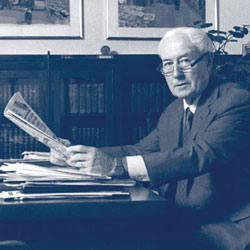Nicole Tierney, a clinical mental health counseling graduate student and disbarred attorney, is one of many nonviolent offenders facing difficulties with New Jersey expungement laws.
Expungement refers to the court-ordered procedure through which the legal record of an arrest or conviction is erased from an individual’s criminal record, according to New Jersey Expungement Lawyer, Katherine O’Brien, Esq.
Tierney pled guilty to a child endangerment charge involving her youngest son in 2007; she lost custody of her children and was sent to drug court, from 2008 to 2011.
In 2010, Tierney tried to obtain a property and casualty insurance license since private employment did not appear to be an option. She was denied the license because she was a felon and in drug court.
After graduating drug court in 2011, Tierney tried to obtain a title insurance license. She passed her exam in Aug. 2013 but had to contest and appeal her initial denial for months before receiving her license. Tierney specified that because it was difficult to find private employment, she pursued a Certificate of Rehabilitation: designed to help rehabilitated offenders find employment and prevents the state from denying a former offender licensure solely based on their criminal conviction.
However, even after being granted the Certificate of Rehabilitation, Tierney did not receive written consent to be employed in the insurance business until Dec. 2013. Despite her license, Tierney was unable to find work as an agent at a title insurance company due to her criminal record. She was able to work as a sales agent, making 25 percent of commission, compared to the 80 percent commissions on premiums that appointed agents make. “Again, my potential and earning capacity were reduced because of my past,” Tierney said.
 In 2017, Tierney became aware of a change in the law which allowed drug court graduates to get an expungement. She filed her petition for expungement and applied to Monmouth University and Seton Hall to pursue her dream of becoming a licensed clinical alcohol and drug counselor. Three days prior to her hearing, Tierney was advised that the Prosecutor’s Office was objecting, and ultimately denied her expungement. She appealed to the Appellate Division who denied the appeal as well.
In 2017, Tierney became aware of a change in the law which allowed drug court graduates to get an expungement. She filed her petition for expungement and applied to Monmouth University and Seton Hall to pursue her dream of becoming a licensed clinical alcohol and drug counselor. Three days prior to her hearing, Tierney was advised that the Prosecutor’s Office was objecting, and ultimately denied her expungement. She appealed to the Appellate Division who denied the appeal as well.
Tierney said, “The law allowing drug court graduates to automatically expunge all of their criminal histories was passed in 2016. However, after three years, only 22 percent of all eligible drug court graduates had received an expungement. This same snag with endangering the welfare of a child that has resulted in me not receiving an expungement has led to many others not receiving an expungement as well.”
According to the brief, The Case for Comprehensive Expungement Law Reform, “New Jersey law limits the types of offenses eligible to expungement in ways that also seem counter to the policy goal of removing unnecessary barriers for a successful fresh start. For example, while an individual with a non-violent felony conviction may be eligible for an expungement of their record, a person convicted of a DUI in New Jersey is not.” It was authored by Johanna Foster, Ph.D., Director of the Sociology Program and an Associate Professor of Sociology; Joseph Patten, Ph.D., an Associate Professor of Political Science; and, Molly Greenberg, M.S.W., Milano School of Policy, Management and Environment, The New School and Monmouth alum.
Foster said of Tierney’s case, “It certainly seems that the statutory language has excluded Tierney from expungement; personally, I fully support folks that have completed drug court… In movement towards better understanding restorative justice, we shouldn’t exclude steps to address expanding expungement.”
In response to this issue, New Jersey Senator Troy Singleton (D-Moorestown) introduced a Bill (S241) in to remove the cross reference in the drug court expungement statute to the list of prohibited crimes which cannot be expunged (like childhood endangerment) but it expired at the end of the 2019 session, Tierney explained. “Once the bill expired and I lost my case at the Appellate Division, I became very active in reaching out to legislators to change the law. I had been emailing and calling since 2018 but was ignored. That is when I began the ‘media campaign’ to try to draw attention so legislators would stop ignoring me,” she said.
Former New Jersey Senator Raymond Lesniak (D-Elizabeth), said, “Expungement is a significant benefit for rehabilitation as would reduce the more than 1000 impediments on former offenders as they re-enter society to live a law abiding, productive life.”
Lesniak continued, “Senator Sandra Cunningham sponsored a law last legislative session that prohibits employers from asking or determining a prior criminal offense until giving a prospective hire an interview however that’s not as helpful as an expungement.”
The Case for Comprehensive Expungement Law Reform explained that “Recent legislative changes in New Jersey, and elsewhere are a step in the right direction, they still do not go far enough to fully address the unjust impact of the stigma of a criminal conviction that will continue to impede thousands in our state.”
Tierney said of the law Cunningham’s sponsored, “That law was a great step, but sadly, I have found that if at any point an employer discovers I am a felon, it is game over, pencils down… At any process, if an employer hears “felon,” my grades, my lived experiences, my credentials, my intelligence, my creativity, are all completely irrelevant.”
Tierney has worked as an administrative assistant and lifeguard for approximately $12 an hour. “I was grateful for each opportunity, but neither position is my highest and best use. There has to be a point where a person’s past becomes their past, inaccessible to anybody,” she said.
Owen Harper, a sophomore criminal justice student, said, “The “felon” label is an incredibly damaging one. Persons labelled felons by their state are often denied many services and opportunities that are imperative to contributing positively to society, or simply living a decent life. Felons can be denied employment, access to public housing, food stamps, and even the right to vote in some states depending on their place in the corrections system.”
Tierney’s life has been impacted in every aspect by her label. When she applies for loans, car leases, and life insurance, the applications ask about arrest and felony.
“I was unable to secure loans for the triplets for college and so we had to borrow all the money against the equity in the house and my parents’ assets,” she said.
Also, Tierney explained that finding housing was a struggle, “Private landlords do background checks, and felons are not a protected class and therefore private landlords can discriminate against felons. Obtaining a rental with no income and felonies was impossible.”
She continued, “My parents co-signed a lease and we got a one-bedroom house. The next year, we had to leave. We visited a house and the kids loved it. My arrest was published in the paper and the landlord said, ‘I know who she is, and I am not renting to her.’ I had to disappoint my children.”
Brittany Macaluso, a junior social work student, said, “By not allowing these records to be expunged, we’re furthering a cycle of recidivism. If we limit peoples’ opportunities and continue to label them after they’ve served their time, they are likely to reoffend because of limited resources due to the term ‘felon.’”
The Case for Comprehensive Law Expungement Reform holds that irrespective of the type of conviction, people with a criminal history in the U.S. face a host of lifelong formal and informal barriers to societal participation, including restrictions on employment access, housing, education, social services, and voting.
Foster said, “Overall, the rates of recidivism are high, and 66 percent of [former offenders] are reincarcerated after three years due to the obstacles they face.”
Tierney said, “While these are many of the practical issues of being a felon, the worst impacts are the unseen impacts. The humiliation, the helplessness, the embarrassment, and the dehumanizing feeling of being different from everybody else. Being ashamed. Being reminded of all the terrible things I did. No matter what I do to change, I can never escape this label.”
She continued, “Most troubling, what about the felons who do not have access to the educational opportunities I do or maybe did not even graduate high school and may not have the work experience I do? How in the world can they make it? These collateral consequences and the label of felon actually increases recidivism by placing barriers to the most essential human needs, employment and housing.”
PHOTOS COURTESY of Jerry Carino, USA Today




